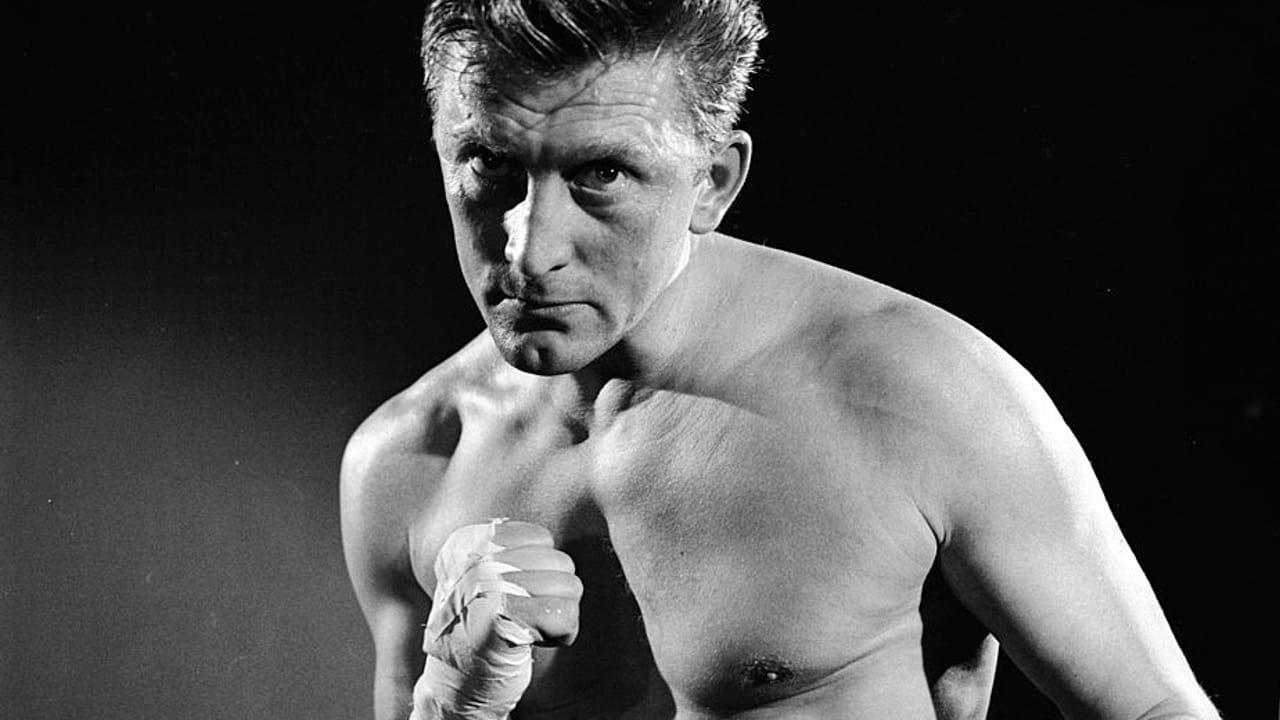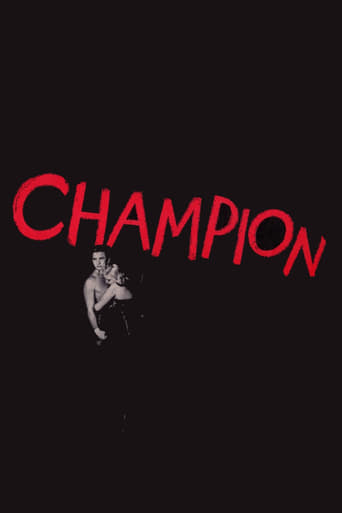

An absolute brilliant performance by Kirk Douglas as the ruthless fighter Midge, who attained success but at a cost finally to himself and others.The film would mark Kirk Douglas's Oscar nomination and it is only too bad that he had Broderick Crawford, the winner, in that category for the latter's magnificent performance as Willie Stark in "All the King's Men," that very same year of 1949.We see a very triumphant boxer and then through the art of flashbacks, the hurt that he invariably caused others.The boxing scenes were quite authentic to say the least and probably mirrored what Midge was doing during his lifetime-creating havoc for others.
... View More"Champion" is a very good movie that is sustained by an amazing performance by Kirk Douglas in the title role. The tale of a determined individual rising from poverty to riches through sheer will is not a new story. Douglas' Midge Kelly is determined to become someone no matter what he has to do and he succeeds; trampling everyone in his path. He alienates those who love him as his lust for personal glory consumes him fully. Anyone seeking for an example of what a charismatic movie star looks like need go no further than Kirk Douglas in this film. He is an absolute powerhouse of physical energy and blows everyone else off the screen. Whether stalking his prey in the ring, hitting the speed bag, effortlessly skipping rope, or launching himself to his feet by pushing his hands off the floor Kirk is just phenomenal. Probably one of the greatest physical performances of all time; echoed many times in the future by action stars like Stallone and Johnson. Supporting performances are excellent as well. The three leading ladies (Maxwell, Albright, and Ruth Roman) are all beautiful and have their chances to shine. Marilyn Maxwell is particularly shallow and her come-uppance at the hands of the even more shallow Douglas is a great scene. Paul Stewart is terrific as the weary manager who protects his fighter's image as a great champion despite knowing what he really is. And Arthur Kennedy turns in a pretty subdued performance that deserves commendation. Although the theme of corruption in boxing is pretty standard stuff in films the character study of Midge Kelly elevates the movie to great heights. And the performance of Kirk Douglas stamps this movie as a classic.
... View MoreDue to current technology, last night I was able to watch "Champion" (1949) for the first time, at home, on my schedule, without having to wait for a commercial TV showing. This powerful, independent, black and white film is a credit to the motion picture industry demonstrating how a good story, expert direction, and a riveting lead performance may successfully substitute standard movie making with higher budgets, special effects, and outdoor locations. The world of boxing is painfully presented, and despite the ambiance, and rawness of it all, one cannot stop watching scene by scene, until the powerful, no nonsense end. Special mention goes to Kirk Douglas' outstanding performance as the strong, unlikeable, and cynic box champion. He pours realism and passion. One of his very best. Arthur Kennedy and Paul Stewart add excellent support. This gem is a must film for movie lovers as myself privileged to watch it 62 years after its original release.
... View MoreStanley Kramer produced but did not direct this classic. That job went to the 36 year old Mark Robson who had been part of the editing team of Orson Welles' two RKO films "Citizen Kane" and "The Magnificent Ambersons." Undoubtedly influenced by his association with Welles and the innovative camera-work of James Wong Howe and the editing of Bob Parrish on Robert Rossen's "Body and Soul" shot two years earlier, Robson had the good fortune to surround himself with excellent collaborators. "Champion" (1949) is spectacularly photographed in B&W by the Austro-Hungarian cinematographer Franz Planer and edited by Harry Gerstad. (Gerstad, ironically, was the only one of the four above technicians to win an Oscar for his artistic achievement.) The style of the film --the fluid camera work, the subjective camera angles, the deep shadows, the tight punch-by-punch cutting-- set a style for boxing films from there on. The same year as the release of "Champion" Robert Wise, who had been Robson's editing boss at RKO, dealt with the same brutal business in "The Set Up."
... View More